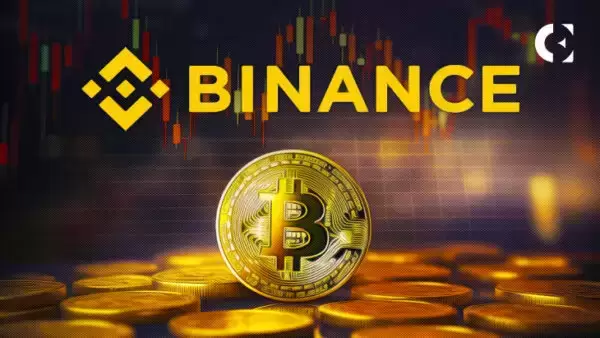 |
|
 |
|
 |
|
 |
|
 |
|
 |
|
 |
|
 |
|
 |
|
 |
|
 |
|
 |
|
 |
|
 |
|
 |
|
Cryptocurrency News Articles
Bitcoin (BTC) Traders Treat Binance Differently From Other Major Exchanges: Analysis
Apr 01, 2025 at 05:51 pm
Bitcoin traders appear to treat Binance differently from other major crypto exchanges currently. This pattern signals a potential shift in market behavior and

Short-Term Holders (STHs) are dumping less Bitcoin (BTC) into Binance than other major crypto exchanges, especially in recent times. This pattern, which could be pivotal for Bitcoin’s price in the near term, is now being closely monitored by on-chain analytics firm CryptoQuant.
The crypto analytics platform found that STHs, generally defined as wallets holding coins for less than 155 days, have been transferring significantly less BTC to Binance compared to other trading platforms.
Over a tracked period, STHs deposited a mere 6,300 BTC onto Binance. This stands in stark contrast to the average 24,700 BTC they sent to other exchanges within the same timeframe.
Conversely, the comparatively higher BTC inflow to “other exchanges” suggests a potential shift in where active traders are seeking liquidity or executing trades.
While Binance is usually recognized for having the highest reported trading volume globally, its lower STH inflows could suggest it’s viewed more as a stable holding location, like a “Bitcoin bank,” rather than the primary hub for short-term trading decisions.
These diverging trends in BTC flow highlight evolving market dynamics that could influence Bitcoin’s price action in the near term as investors adjust their trading or holding strategies between exchanges.
Binance’s Large BTC Balance
Binance continues to hold a massive amount of Bitcoin on behalf of its users, a factor that contributes significantly to its large market share.
According to data from Coinglass tracking exchange balances, Binance’s reported BTC balance (around 569,561 BTC) is currently the second-largest among major centralized platforms, after Coinbase Pro.
This large balance suggests that many users continue to trust Binance as a primary platform for minding their own Bitcoin.
A closer look at the timeframes reveals further details. In the 24-hour view, Binance’s net BTC balance (around +1,698 BTC) appears relatively stable. However, Bitfinex shows a much larger net inflow (+11,755 BTC).
This could indicate more significant active trading or a large deposit occurred on Bitfinex during that window.
7-Day Vs. 30-Day Trends
In the seven-day time frame, Binance shows a slight net inflow of +968 BTC. This means that more Bitcoin was deposited into Binance than withdrawn over the past week.
However, major counterparts Coinbase Pro (-7,792 BTC) and Bitfinex (-7,524 BTC) display substantial net outflows. This implies traders moved significant amounts of BTC from those platforms in recent times, possibly to self-custody or transfer to another exchange or venue.
Over a longer 30-day period, Binance has experienced net outflows (around -13,796 BTC), indicating some Bitcoin did move out of the exchange over the month despite the weekly stability.
The general trend shows most major exchange platforms have seen their BTC balances decline over the past 30 days. This could suggest more Bitcoin is flowing into private, user-controlled wallets—a self-custody trend.
Disclaimer:info@kdj.com
The information provided is not trading advice. kdj.com does not assume any responsibility for any investments made based on the information provided in this article. Cryptocurrencies are highly volatile and it is highly recommended that you invest with caution after thorough research!
If you believe that the content used on this website infringes your copyright, please contact us immediately (info@kdj.com) and we will delete it promptly.
-

- Pepe Coin (PEPE) Price Prediction: Uncertain Price Action Stalk Meme-Based Cryptocurrency Despite Signs of Accumulation
- Apr 03, 2025 at 02:15 am
- Pepe Coin (PEPE), a meme-based cryptocurrency known for its large community following and viral internet appeal, faces uncertain price action following recent market movements.
-

-

-

-

-

-

-

-






























































